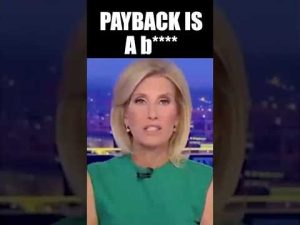**The Vaccine Wars: A Leaked Memo Sparks Controversy Over Lobbying and Political Influence**
In a surprising turn of events, a leaked memo from April has ignited a debate surrounding vaccine policies and Big Pharma’s influence in politics. The document reveals that major pharmaceutical companies, including Pfizer and Novavax, held meetings to strategize their approach to U.S. lawmakers regarding Robert F. Kennedy Jr.’s influential stance against vaccines. The memo highlights the companies’ concerns about Kennedy’s anti-vaccine activism and portrays the organized opposition as a threat to public health.
The memo’s revelation sheds light on the intense lobbying efforts that are becoming a hallmark of the vaccine debate. Pharmaceutical companies are clearly invested in maintaining the status quo and protecting their revenue streams. They describe the actions of Kennedy and his supporters as part of the “Maha movement,” branding it as a cover for their broader anti-vaccine campaign. In their view, this growing opposition poses a significant risk to vaccine acceptance and public health at large.
Kennedy’s push for transparency in vaccine safety and testing is seen by pharma executives as a destabilizing force. The memo admits that there is substantial financial motivation for these companies to present vaccines as the unquestionable solution to public health crises, a narrative that they believe is increasingly under threat. By openly discussing the committee’s strategy, the memo practically hands the keys to the kingdom to those interested in exposing the flaws within the current vaccine framework.
A recurring theme in this discourse is the idea of “agency capture,” where regulatory bodies like the CDC and the FDA become too cozy with the industries they regulate. Critics argue that the billions in profits at stake have compromised these agencies’ integrity, thus allowing pharmaceutical companies to dictate the terms of the conversation about public health. The memo adds further fuel to the fire, suggesting that the pharmaceutical industry is acting out of fear rather than genuine concern for the health of the American public, leading to an ongoing battle for transparency and accountability.
Interestingly, the conversation surrounding vaccines has even reached former President Donald Trump, who has historically played by the pharmaceutical companies’ tune. Recently, Trump expressed skepticism about the information presented to him regarding vaccine efficacy, suggesting that the numbers should be shared publicly for scrutiny. This indicates a potential shift in his approach, encouraging transparency and opening the door for a more honest dialogue about vaccine safety.
The introduction of skepticism from such a prominent figure in Trump hints at a growing sentiment among conservatives against blind support for vaccines. While this doesn’t erase the years of unwavering confidence in Operation Warp Speed, it sparks curiosity about what lies ahead for vaccine policy in the United States. With Kennedy standing firmly at the forefront of the anti-vaccine movement, and now Trump’s acknowledgment of potential flaws, the battle lines seem drawn for an ongoing clash against the established medical and political norms.
In conclusion, the leaked memo serves as a wake-up call about the intertwining of money, lobbying, and public health policy. Whether one supports or opposes vaccines, it is now clearer than ever that this debate transcends medical science and delves deep into the political battlefield. As Kennedy’s movement gains traction, and more influential figures question the narrative, the future of vaccine policy could shift radically in the coming months. The vaccine wars aren’t just heating up; they are turning into a full-blown spectacle that both sides will be watching closely.







